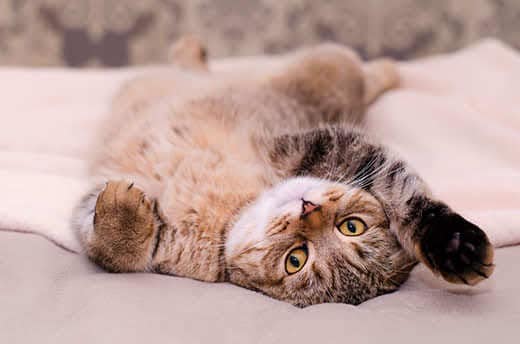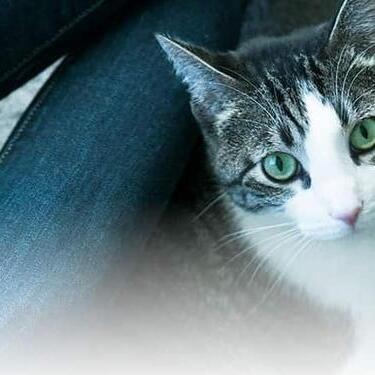
-
Find the right food for your pet
Take this quiz to see which food may be the best for your furry friend.
Find the right food for your pet
Take this quiz to see which food may be the best for your furry friend.
Featured products
 Small & Mini Savory Stew with Chicken & Vegetables Dog Food
Small & Mini Savory Stew with Chicken & Vegetables Dog FoodA delicious complement to the nutrition of Science Diet Small & Mini 7+ dog food
Shop Now Adult Healthy Cuisine Roasted Chicken, Carrots & Spinach Stew Dog Food
Adult Healthy Cuisine Roasted Chicken, Carrots & Spinach Stew Dog FoodDelicious roasted chicken paired with tender vegetables in a succulent stew
Shop Now Adult 7+ Perfect Digestion Chicken, Whole Oats & Brown Rice Recipe Dog Food
Adult 7+ Perfect Digestion Chicken, Whole Oats & Brown Rice Recipe Dog FoodScience Diet's breakthrough nutrition supports ultimate digestive well-being & healthy microbiome for dogs age 7+
Shop NowFeatured products
 Adult 7+ Senior Vitality Chicken & Vegetable Stew Cat Food
Adult 7+ Senior Vitality Chicken & Vegetable Stew Cat FoodImproves Everyday Ability to Get Up & Go
Shop Now Adult 7+ Tender Tuna Dinner Cat Food
Adult 7+ Tender Tuna Dinner Cat FoodWith delicious chunks in a decadent gravy
Shop Now Adult Savory Entrée Can Variety Pack Cat Food
Adult Savory Entrée Can Variety Pack Cat FoodPrecisely balanced nutrition with the delicious taste of savory minced chicken to help fuel the energy needs of cats during the prime of their life
Shop Now -
Dog
- Dog Tips & Articles
-
Health Category
- Weight
- Food & Environmental Sensitivities
- Urinary
- Digestive
- Joint
- Kidney
-
Life Stage
- Puppy Nutrition
- Adult Nutrition
- Senior Nutrition
Cat
- Cat Tips & Articles
-
Health Category
- Weight
- Skin & Food Sensitivities
- Urinary
- Digestive
- Kidney
-
Life Stage
- Kitten Nutrition
- Adult Nutrition
Featured articles
 Does My Pet Hate Me?
Does My Pet Hate Me?Learn tips for bonding with your pet if you've ever thought, 'My dog doesn't like me, or 'Why do I have a standoffish cat?'
Read More Why Are Dogs and Cats So Cute?
Why Are Dogs and Cats So Cute?If waggy puppy dog tails and furry kitten yawns make you swoon, you're not alone. Why are cats so cute? And, dogs too! Let's find out!
Read More Do Dogs and Cats have Belly Buttons?
Do Dogs and Cats have Belly Buttons?Learn whether cats & dogs have belly buttons like humans, what the function is, and if there are any health concerns associated with it.
Read More -


While petting your cat, you feel a squishy lump on their belly. Could they have a hernia? Cat hernias are relatively uncommon, but they can happen. The good news is that hernias are easily treated with surgery — and if your cat was born with a hernia, it can be repaired during a spay or neuter procedure. Here's what you should know about this condition.
Cat Hernia Basics
A hernia occurs when there's an abnormal hole in the muscle wall of the abdomen or diaphragm. Fat or internal organs can protrude through the hole, causing a squishy lump noticeable from the outside. The classic cat hernia is located over the area where your cat's bellybutton would be. Usually the lump isn't painful, and it may disappear if you gently push on it. If this occurs, it's because the hernia is reducible, meaning the contents of the hernia can be pushed back into the body. Not all hernias are reducible.
A cat hernia is usually not life-threatening. However, on rare occasions, internal organs such as intestines can protrude through the opening in the muscle wall. If this cuts off an organ's blood supply, it can be life-threatening.
If the hernia only contains fat, then you probably won't see any other signs other than the lump. If the hernia contains any abdominal organs, then you may observe a large swelling that's painful or hot and your cat may vomit, lose their appetite, have bloody urine and/or have less energy.
Causes and Types of Cat Hernias
If a cat has a hernia, they're typically either born with it or it's the result of some type of injury. Physical trauma, weak abdominal walls, pregnancy and birth defects are the most common causes of hernias in cats. Extreme or repeated constipation that requires straining to defecate has also been reported to cause hernias in cats.
Hernias are classified by where they occur in the body. There are three types:
- Umbilical hernia: This is the most common type of kitten hernia. It's usually congenital (the result of a genetic disposition) and happens when the bellybutton doesn't close properly at birth. This hernia may close on its own without surgery. If it doesn't close, then it can be surgically repaired when the kitten is spayed or neutered.
- Hiatal hernia: This type of hernia happens inside the body — you can't see it from the outside. It occurs when there's a hole in the diaphragm, which allows abdominal organs to slide in and out of the chest cavity. A hiatal hernia can be congenital or can be a result of trauma, such as being hit by a car.
- Inguinal hernia: This type of hernia is located in the inguinal region, essentially the armpits of the back legs. It develops when abdominal fat or internal organs push through the inguinal canal, resulting in a squishy lump that may disappear if you push on it.

Cat Hernia Diagnosis and Treatment
If you suspect your cat has a hernia, it's important to have a veterinarian check it out as soon as possible. Most cat hernias can be diagnosed by physical exam alone, except for hiatal hernias, which can only be diagnosed with an X-ray or abdominal ultrasound. If the hernia is very hard or large, your vet may order an X-ray to determine if any abdominal organs are trapped.
Treatment depends on the hernia's size and location. If the hernia is small, your cat might not need surgery. If they have a larger hernia, then surgery is required to keep internal organs from slipping out of the hole. If internal organs are trapped in the hernia, then emergency surgery is needed right away.


Tasty Tips
Cat Hernia Surgery and Recovery
Hernia surgery consists of pushing the abdominal contents back into the abdominal cavity and sewing the hole in the abdominal or diaphragmatic muscles. Surgical mesh may also be used to strengthen weak muscles.
If your kitten has a hernia and the vet recommends surgery, this can occur when they're spayed or neutered. This will not only reduce the amount of anesthesia and hospitalization your kitten needs, but will also likely cost less than having a separate surgery.
Many times after female cats are spayed, pet parents notice swelling around the bellybutton area and mistake this swelling for a hernia. However, swelling after spay surgery is rarely due to a hernia. Instead, the swelling is caused by inflammation due to the cat being too active too soon after surgery and/or due to the skin reacting to the stitches. Always have any swelling checked, and reduce your cat's likelihood of post-surgical swelling by limiting their activity, wearing an e-collar and following your vet's instructions.
Take good care of your cat post-surgery and consider feeding them a therapeutic food that offers nutritional support for pets recovering from surgery.
Prevention and Prognosis
Besides keeping your cat indoors to avoid car accidents and lower their risk of injury, there's no way to reduce the risk of hernias.
When adequately addressed and corrected, hernias in cats have a very good prognosis, and hernias rarely return. If a kitten has a congenital hernia, it's advised to not breed that kitten as an adult because congenital hernias can be passed to the next generation.


Dr. Sarah Wooten graduated from UC Davis School of Veterinary Medicine in 2002. A member of the American Society of Veterinary Journalists, Dr. Wooten divides her professional time between small animal practice in Greeley, Colorado, public speaking on associate issues, leadership, and client communication, and writing. She enjoys camping with her family, skiing, SCUBA, and participating in triathlons.
Related products

Precisely balanced nutrition with the delicious taste of savory minced chicken to help fuel the energy needs of cats during the prime of their life

Improves Everyday Ability to Get Up & Go

Supports energy level and beautiful fur in mature cats

With delicious chunks in a decadent gravy
Related articles

Discover which cat toys games your feline friend might like, and how they are great sources of exercise. Explore our library of articles to learn more.

Brushing your cat's teeth is just as important as brushing your own. Learn signs or oral health problems in your cat and how to avoid them.

Discover the benefits of Hill's line of kitten foods and how they provide complete and balance nutrition for growing kittens.

Discover how to identify cat sensitive skin and what you can do to help your cat thrive from head to paw.

Put your cat on a diet without them knowing
Our low calorie formula helps you control your cat's weight. It's packed with high-quality protein for building lean muscles, and made with purposeful ingredients for a flavorful, nutritious meal. Clinically proven antioxidants, Vitamin C+E, help promote a healthy immune system.
Put your cat on a diet without them knowing
Our low calorie formula helps you control your cat's weight. It's packed with high-quality protein for building lean muscles, and made with purposeful ingredients for a flavorful, nutritious meal. Clinically proven antioxidants, Vitamin C+E, help promote a healthy immune system.

